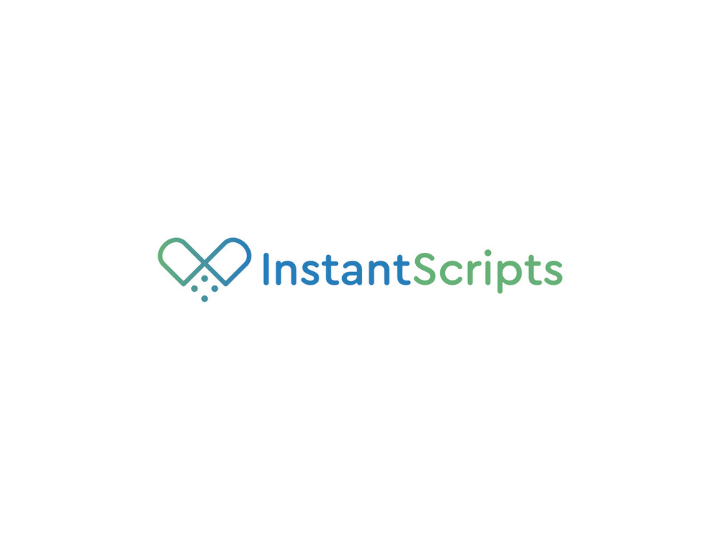
SmartCompany Smart50 Awards: How the ‘dream partnership’ behind InstantScripts led to 15x revenue growth
For Asher Freilich, the co-founder of InstantScripts, having worked as a doctor after a successful stint as an investment banker made him well placed to recognise what he calls the “clunky and inefficient” parts of the healthcare system.
When Freilich met his now co-founder Maxim Shklyar at a networking event a few years ago, the duo decided to strike a partnership, combining Freilich’s corporate and clinical background with Shklyar’s experience in technology.
“What’s enabled the business to scale and what’s made it work really well is this dream partnership with a clinician and a tech wizard,” Freilich tells SmartCompany.
It’s InstantScripts’ ability to scale, and scale fast, that helped the startup take out the top rank in the Smart50 Awards 2021.
Competing against other fast-growing small-to-medium businesses across Australia, InstantScripts landed the number one spot in the awards, recording revenue of $7.5 million in the 2020-21 financial year, up 1441% since 2018-19.
Tackling inefficiencies
Freilich and Shklyar founded InstantScripts in 2017 to streamline the way patients receive repeat prescriptions for common medications, such as those used to treat asthma, high blood pressure, high-cholesterol and diabetes.
“Being a GP really exposed me to some of the inefficiencies that existed in our healthcare system, and given that I had a background in finance and medicine, I was in a good position to tackle some of those inefficiencies,” Freilich says.
Before founding InstantScripts, Freilich was a healthcare investment banker at Citi in Sydney and established a couple of other healthcare businesses.
Freilich set up Phonemed in 2011, which is a hotline that provides injury management advice to businesses.
Fast-forward five years, Freilich founded the telehealth startup myDr Go, connecting doctors with patients virtually via an online platform. He continues to direct both Phonemed and MyDr Go alongside InstantScripts.
Maxim Shklyar, on the other hand, has been a web developer for more than two decades, and is a serial entrepreneur, having founded about 10 startups. Among these startups are XIML and xpertise-mobile, and Shklyar continues to run kisla interactive, providing a suite of web development services to businesses, including rapid prototype development.
Together, the co-founders were able to develop a solution that modernises the way doctors provide prescriptions to patients using an online platform.
InstantScripts services are simple: patients seeking a prescription can pay $40 for a telehealth appointment with a doctor or $15 for the express option.
If the patient chooses the express option, they don’t need a phone consultation, they simply answer some written questions generated by InstantScript’s AI, before a doctor reviews the responses and issues the script. InstantScripts then emails the patient’s script directly to their pharmacist.
The rise of telehealth
During the COVID-19 crisis, Freilich says it “was very challenging” to meet the surge in demand for telehealth services.
“Telehealth went from being a fringe service that was viewed with suspicion by the medical community to one that was rapidly embraced, and for a short period funded by Medicare,” he says.
When InstantScripts’ volumes exploded following city and state-wide lockdowns, Freilich didn’t have enough general practitioners to service the requests coming in.
Luckily, many medical clinics either closed or shortened their hours due to COVID-19, leaving doctors searching for additional work.
“So we ended up picking up a whole bunch of GPs whose critical hours had reduced due to COVID-19,” Freilich says.
In June this year, the investment management firm Perennial helped InstantScripts secure $10.9 million in funding to drive the online prescription services’ growth.
There are now 30 doctors either employed on a full-time basis or contracted by InstantScripts, and Freilich says he continues to receive about 10 applications from other GPs each week.
On top of GPs, InstantScripts employs a head of product, accounts and customer support manager and several full-stack developers to service customers and manage the platform.
Despite COVID-19 restrictions easing across NSW and Victoria, Freilich isn’t fazed by a looming drop in the popularity of telehealth services.
In fact, he says he’s not seeing a decline, rather he’s seeing demand for telehealth “increase at a rate of knots”.
InstantScripts’ pipeline of future projects will draw on this momentum and includes expanding services to include pathology.
Freilich says he’s also looking at forming partnerships with allied health professionals, allowing them to have a “virtual doctor in the room”.
He uses the example of a dietitian who can’t offer advice to a client they’re with in person until they have first consulted a GP.
“It just makes the whole process more efficient and could take three visits down to one visit,” he says.
